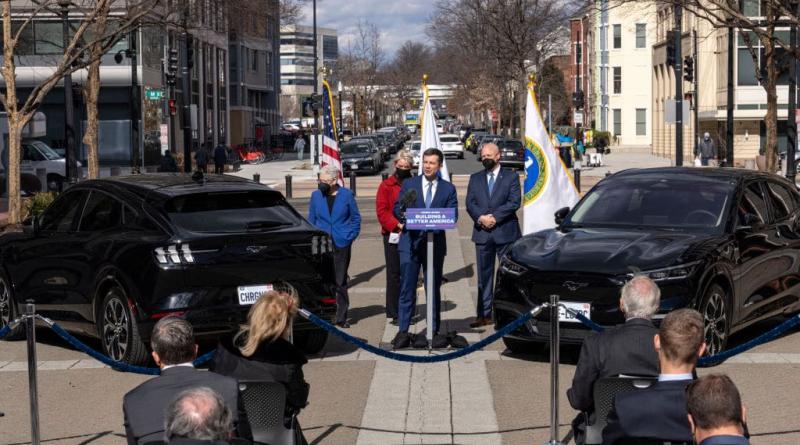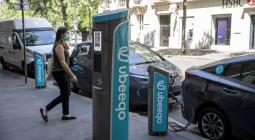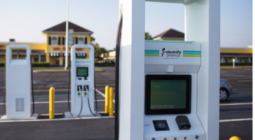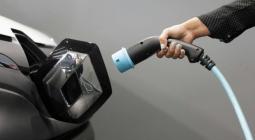White House Announces Nearly $5 Billion for EV Charging Stations

The Biden Administration announced plans on Thursday to spend nearly $5 billion to create a network of electric vehicle charging stations along U.S. highways.
The funding comes from the National Electric Vehicle Infrastructure (NEVI) Formula Program established by President Joe Biden’s Bipartisan Infrastructure Law, the U.S. Departments of Transportation and Energy said in a joint announcement. The goal is to create Alternative Fuel Corridors, prioritizing the Interstate Highway System.
“A century ago, America ushered in the modern automotive era; now America must lead the electric vehicle revolution,” U.S. Transportation Secretary Pete Buttigieg said in the announcement. “The President’s Bipartisan Infrastructure Law will help us win the EV race by working with states, labor, and the private sector to deploy a historic nationwide charging network that will make EV charging accessible for more Americans.”
The money will be shared with states over the next five years, The Washington Post reported. Most likely, the work of installing and operating the stations themselves will be contracted to private companies. The goal is to make charging an electric vehicle as easy as fueling at a gas station, and it builds towards the administration’s pledge to make sure half of new cars are hybrids or battery-powered by 2030.
“We are modernizing America’s national highway system for drivers in cities large and small, towns and rural communities, to take advantage of the benefits of driving electric,” U.S. Secretary of Energy Jennifer M. Granholm said in the announcement. “The Bipartisan Infrastructure Law is helping states to make electric vehicle charging more accessible by building the necessary infrastructure for drivers across America to save money and go the distance, from coast-to-coast.”
The Biden administration will begin by offering $615 million to states this year once they submit their plans and have them approved by the government, Reuters explained. The administration also outlined guidelines for states. States should fund stations that can charge four vehicles at once, install chargers every 50 miles along highways and install them within one mile of a highway. The federal money is only designed to cover 80 percent of the costs, with states or private companies funding the remaining 20 percent.
The White House guidelines also emphasize environmental justice, according to The Hill.
“[Plans] should explain how the State will deliver projects … [that] target at least 40 percent of the benefits towards disadvantaged communities,” the guidance document says, as The Hill reported.
States must submit their plans by August 1, and the administration will respond by September 30.
The administration says the nearly $5 billion investment is the largest of its kind. Still, a total of $39 billion is needed to complete a public charging system by 2035.
“The $5 billion the EV Charging Program will provide is a historic investment, but it is far from sufficient,” the Natural Resources Defense Council wrote in comments to the Federal Highway Administration, as The Washington Post reported. “Federal guidance should do everything possible to encourage complementary commitments and hedge against displacing other investments or programs.”





